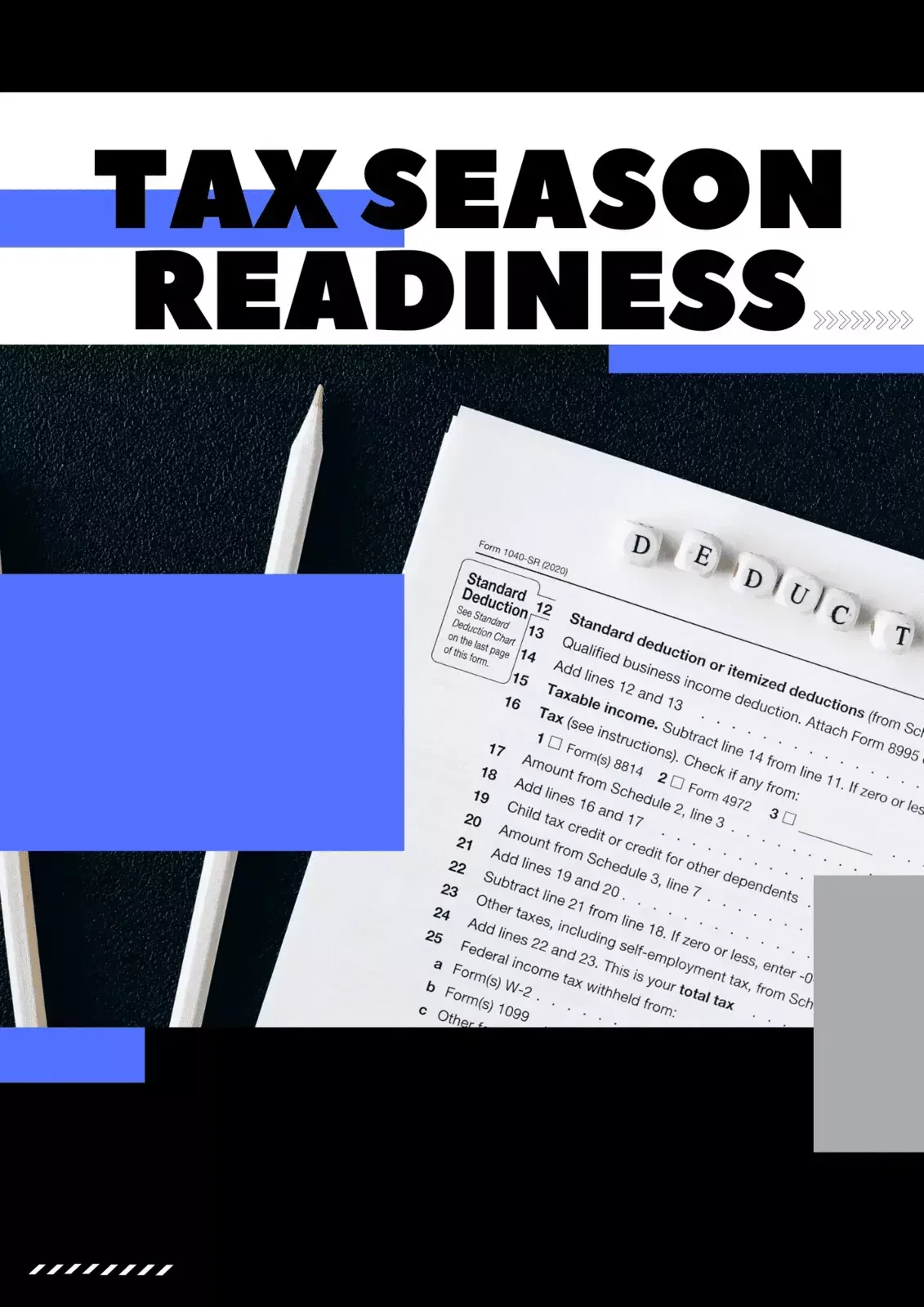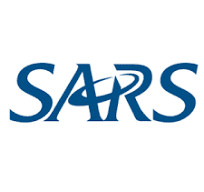
Your income tax return is a document that you submit to SARS on which you report your taxable income and all the permitted deductions and exemptions so that SARS can determine your tax liability.
TAX TIP: If your assessment letter shows a negative amount, it is a good thing. This means you are due a refund!
The minimum qualifying amount changes annually. Therefore, make sure you look up the latest threshold on www.sars.org.za to see if you qualify to submit or not return your tax returns. Here are the tax thresholds for the 2024-2025 tax year:
The tax year begins on the 1st of March in the first year to the 28th or 29th of February in the following year - for example, the tax year from 1 March 2021 to 29 February 2022 would be called the 2022 tax year.
For individuals: Non-Provisional taxpayer: 15 July – 21 October & Provisional taxpayers: 15 July – 20 January.
Where do I find my Tax Number
Your income tax reference number is a unique 10-digit number issued by SARS to a taxpayer on registration. If you are registered, you can find your tax number on your notice of registration from SARS (only available at a SARS branch), employee tax certificate (IRP5 or IT3(a)) or on the income tax work page on e-filing.
What is an IRP5
The IRP5 is the most important document for salaried employees. It details all your earnings, deductions and taxes already paid by your employer for the year worked. An IRP5 is completed for every employee (you) once every income tax year and issued to you so that you can complete your tax return. On the other hand an IT3(a) is used to report the earnings of employees from whom tax has not been deducted.
What is a Provisional Tax Payer
A provisional taxpayer is an individual or entity that earns income from non-PAYE sources, such as self-employment, business ownership, investments, or rental income. They are required to make provisional tax payments twice a year to estimate their tax liability. This type of taxpayer must submit provisional tax returns and a final income tax return at the end of the tax year. They may also claim deductions and expenses related to their business or investment income.
What is a Regular Tax Payer
A regular taxpayer is an individual who earns income from PAYE sources, such as a salary or wages. Their tax is deducted by their employer through the PAYE system, and they may only need to submit a final income tax return at the end of the tax year if required. Regular taxpayers are less likely to face penalties and may still be eligible for rebates and exemptions. Their tax obligations are generally simpler compared to provisional taxpayers.
Don't lie on your Tax Return
To avoid penalties, make sure you have the correct documentation and proof for every claim you make. It’s a criminal offence not to pay income tax and if you’re caught you may be heavily fined or sent to jail.

Preparation Checklist
1. Gather necessary documents:- IRP5/IT3(a) certificates from employers
- IT3(b) certificates for investment income
- Medical aid certificates
- Retirement annuity fund certificates
- Travel logs (for business travel claims)
- Receipts for charitable donations
- Home office expenses (for freelancers/entrepreneurs)
2. Register for eFiling (if not already registered)
3. Verify your tax identity number and ensure it's updated
4. Check for auto-assessments (SARS may auto-assess your tax)
5. Address any tax-related queries or disputes
Tax Filing Categories
Individuals: IT12 return
Trusts: IT12T return
Companies: IT14 return
Small Business Corporations: IT14 return
Dates as per 2024 tax year
Individuals: 23 November (manual filing) or 31 January (eFiling) Adjust accordingly
Provisional Tax: 31 August (first provisional payment) and 28 February (second provisional payment) Adjust accordingly
Companies: 12 months after financial year-end (e.g., 31 December year-end: 31 December)
Tax Rates:
Individuals: 18-45% (progressive tax rate) (rate as per 2024 tax year)
Trusts: 45% (flat rate) (rate as per 2024 tax year)
Companies: 28% (flat rate) (rate as per 2024 tax year)
Additional Tips:
Consult a tax practitioner or financial advisor for complex returns
Use SARS's Tax Calculator to estimate tax liability
Keep records for at least five years
Verify tax clearance certificates for foreign investment purposes

Tax Credits and Deductions
Medical Expenses: Claim Medical Expenses exceeding R 10 000 (Section 18A) As per 2024 Tax Year
Eligible expenses include:
Medical consultations and procedures, Hospitalization and surgery, Medication and prescriptions, Medical appliances and devices, Travel costs for medical treatment
(accommodation, transport, meals)
Supporting documents required:
Medical invoices and receipts, Prescription records, Hospitalization records, Medical certificates
Tax relief:
33.3% of qualifying expenses above R10,000 (for taxpayers under 65)
33.3% of qualifying expenses above R10,000, plus an additional R40,000 (for taxpayers 65 and older)
Retirement Annuity Funds: Deduct contributions up yo 27.5% of taxable income (Section 11F) rate as per 2024 tax year
Eligible contributions:
Retirement annuity funds, Pension funds, Provident funds
Limitations:
Maximum deduction: 27.5% of taxable income (capped at R350,000)
Contributions exceeding the limit are carried over to the next tax year
Supporting documents required:
Retirement fund certificates, Proof of contributions
Home Office Expenses: Claim a portion of rent/ mortgage interest, utilities & other expenses (Section 11(a)) rate as per 2024 tax year
Eligible expenses:
Rent or mortgage interest, Utilities (electricity, water, gas), Repairs and maintenance, Insurance, Furniture and equipment depreciation
Requirements:
Home office must be used regularly for business purposes
Business use percentage must be calculated (e.g., number of rooms used for business)
Supporting documents required:
Rent or mortgage agreements, Utility bills, Invoices for repairs and maintenance, Insurance policies
Travel Expenses: Claim business travel expenses (Section 11(b)) rate as per 2024 tax year
Eligible expenses:
Transport costs (flights, car rental, fuel), Accommodation, Meals and entertainment, Conference and training fees
Requirements:
Travel must be for business purposes
Logbook or travel diary required to record business kilometers traveled
Supporting documentation for expenses
Supporting documents required:
Travel invoices and receipts, Logbook or travel diary, Business purpose documentation

Charitable Donations: Claim donations to registered public benefit organisations (Section 18A) rate as per 2024 tax year
Eligible donations:
- Cash donations
- Donations in kind (goods or services)
Limitations:
- Maximum donation deduction: 10% of taxable income
- Donations exceeding the limit are carried over to the next tax year
Supporting documents required:
- Donation receipts
- Proof of payment
- Public benefit organization certification
Interest Income: Claim interest earned on savings accounts, bonds and other investments (Section 11(a)) rate as per 2024 tax year
Eligible interest:
- Interest from savings accounts
- Interest from bonds and fixed deposits
- Interest from unit trusts and collective investment schemes
Requirements:
- Interest must be declared on the tax return
- Supporting documentation required
Supporting documents required:
- Interest certificates
- Bank statements
- Investment statements

Tax Season
Tax Season
Make sure everything is up to date for a hassle-free filing experience.
This year from 1 July 2024 we will again issue auto-assessments to taxpayers whose tax affairs are less complicated. If you are in agreement with your auto-assessment, then there is no need to ‘accept’ the assessment. If a refund is due to you, it will automatically be paid into your bank account.
Read the SARS article HERE

How to Maximise your Tax Savings
Paying less tax should be an important part of your financial planning. We tap into insights from industry experts Nicci Courtney-Clarke, head of Tax at TaxTim, and Bronwen Trower, co-portfolio manager at Investec Wealth & Investments, to explore strategies for minimising your tax liability. We’ll provide an overview of common tax breaks and share easy ways to make the most of them.
Read the Investec article HERE
